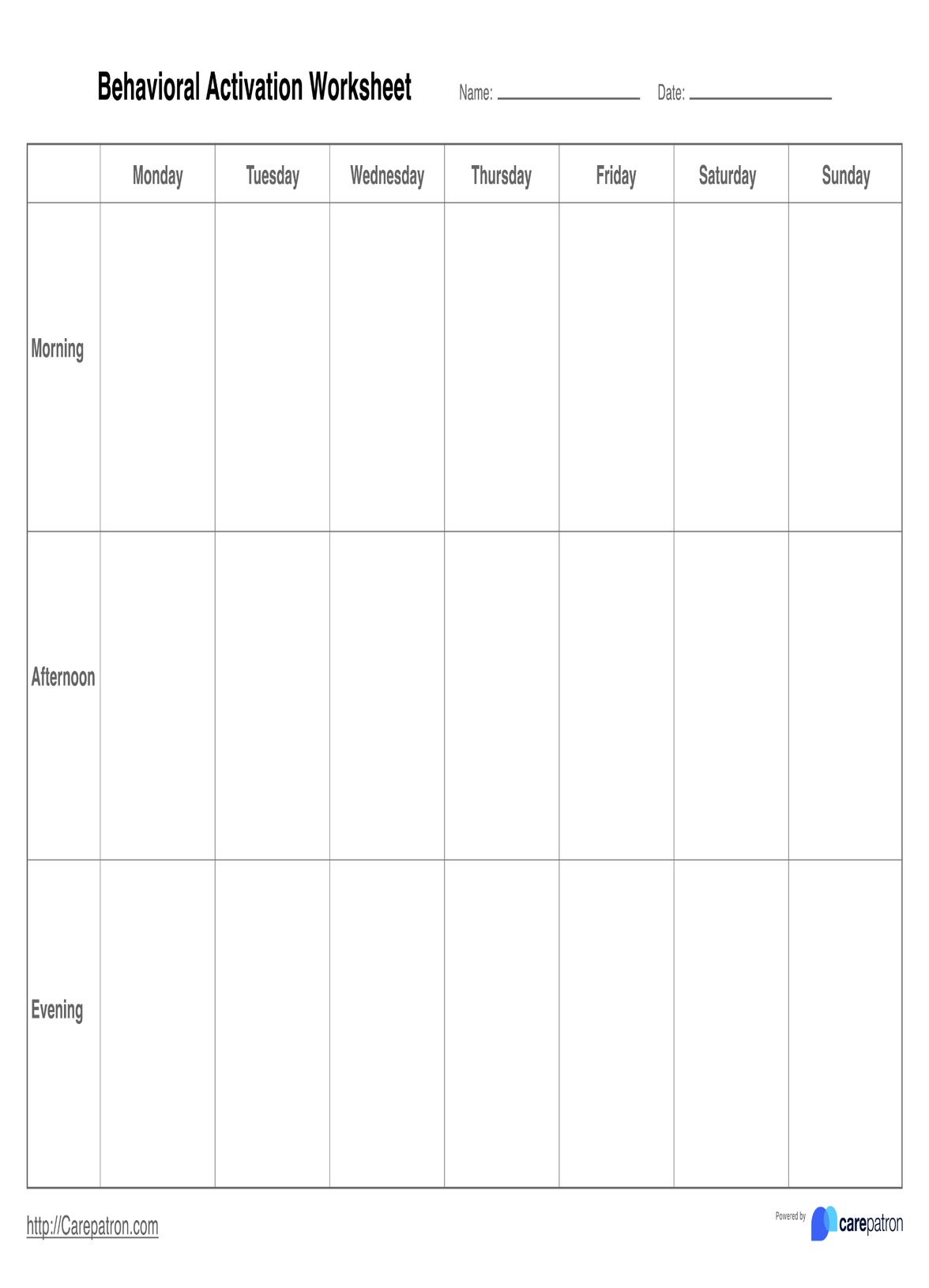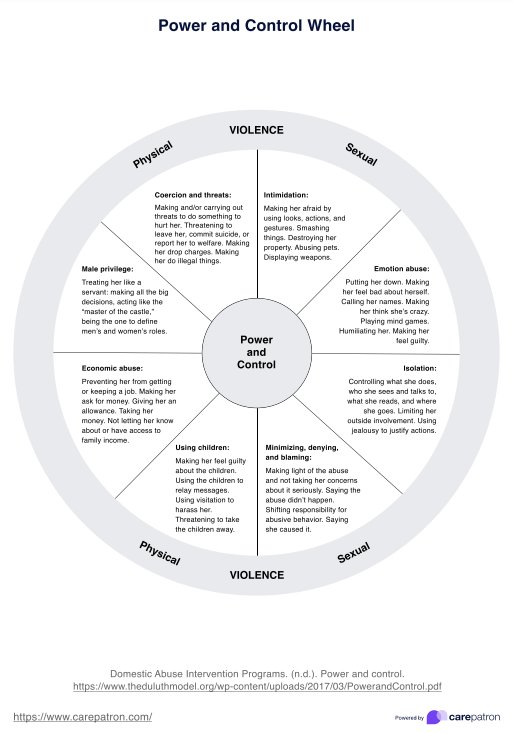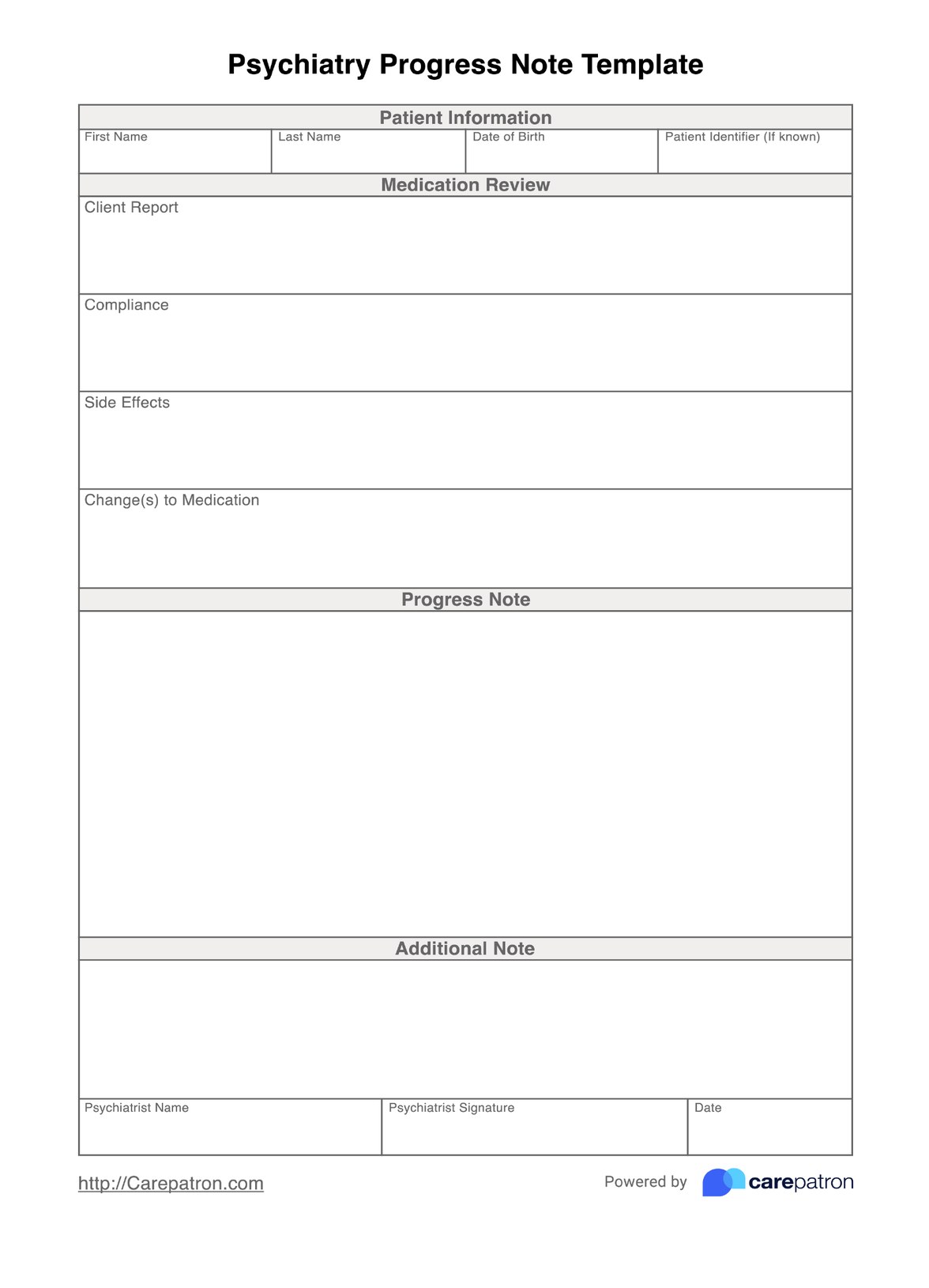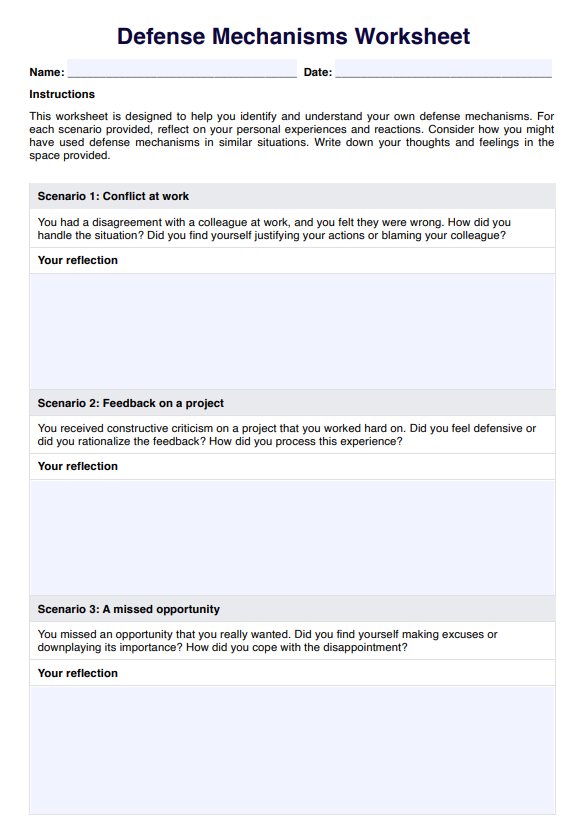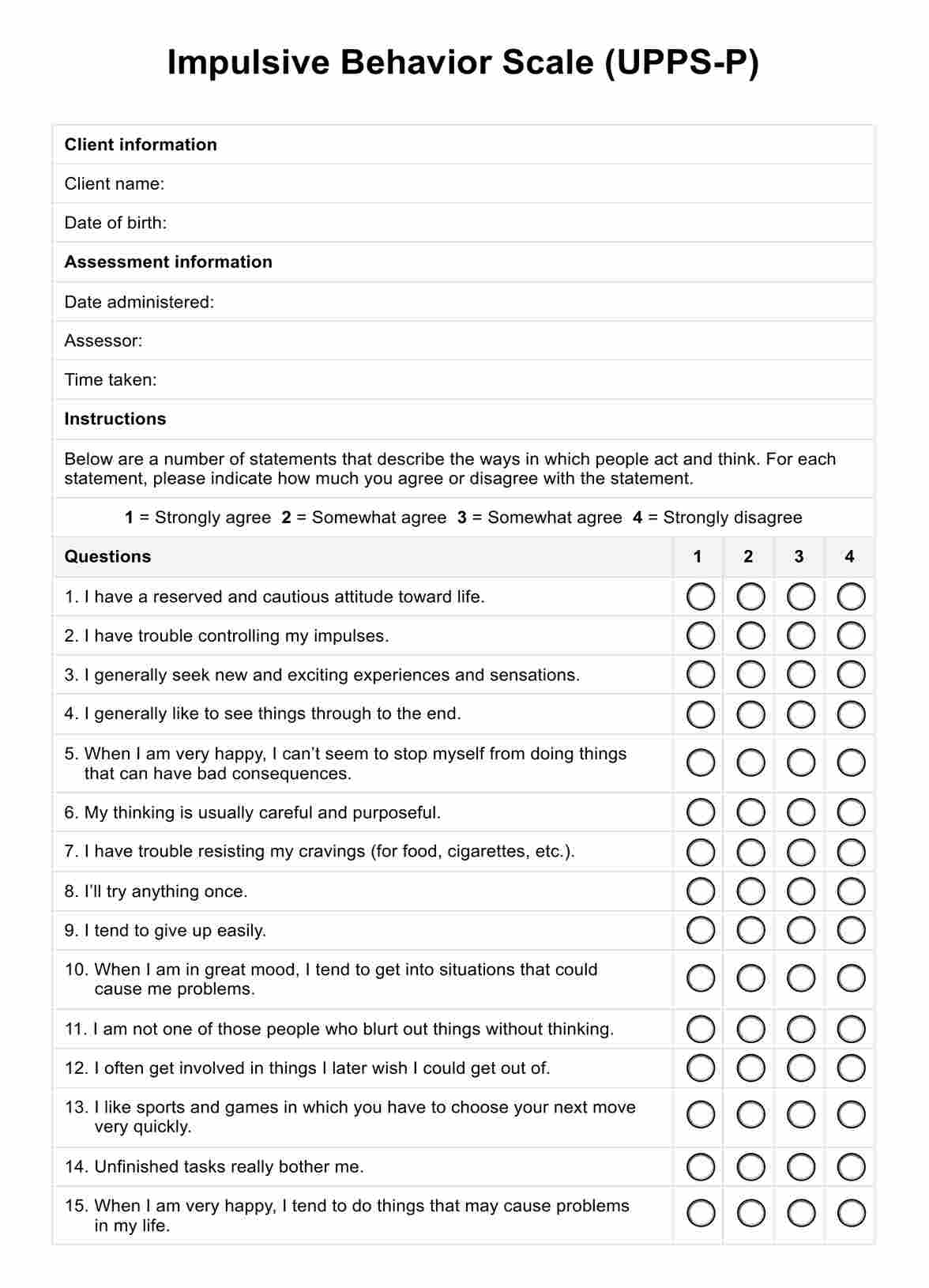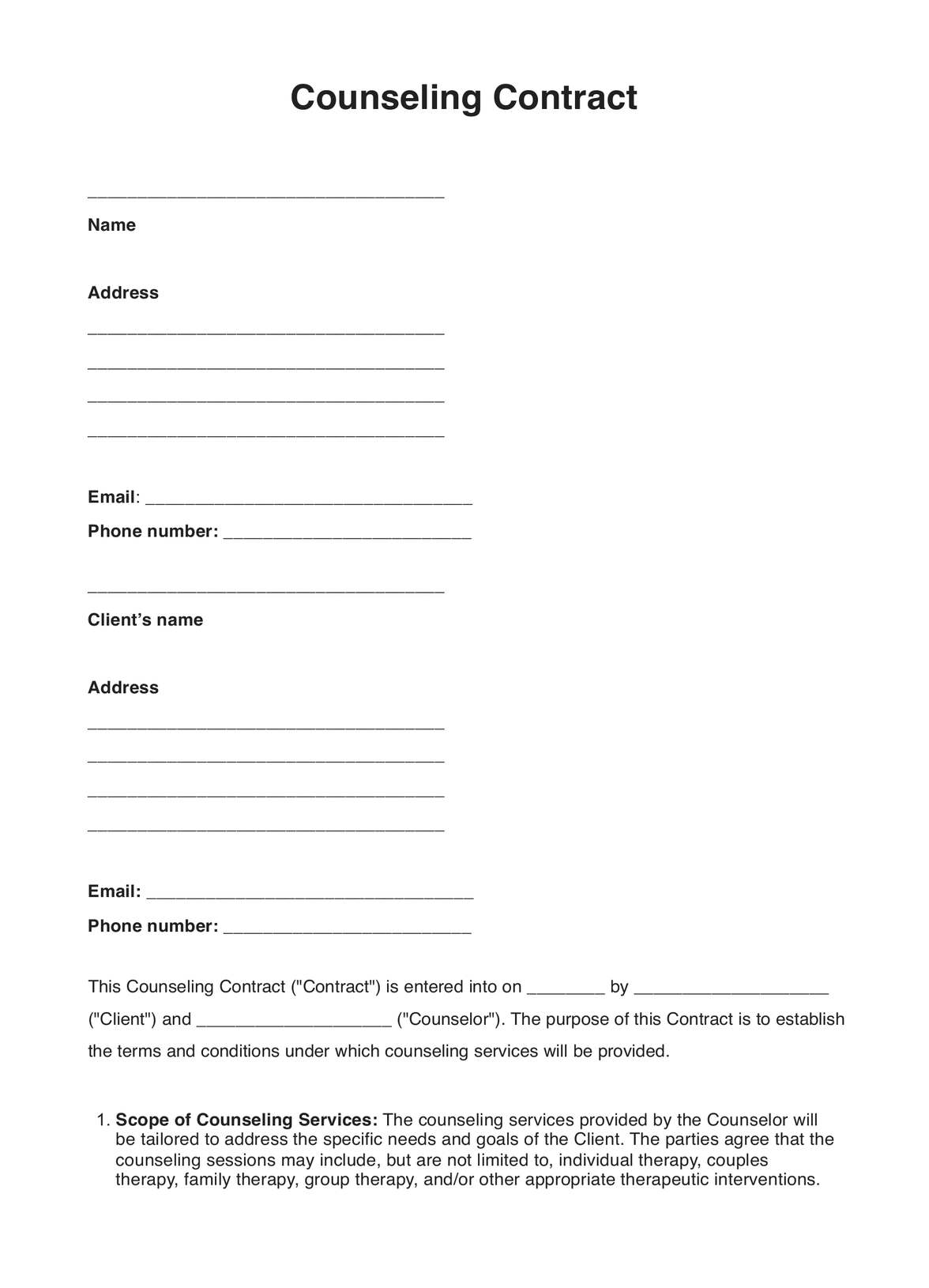Coping Skills for Paranoia Handout
Carepatron's free PDF download teaches effective coping skills for managing paranoia. It also provides examples and strategies for healthily navigating feelings of paranoia.


What is paranoia?
Paranoia is a mental health condition characterized by intense and irrational distrust or suspicion of others. It often involves exaggerated or unfounded beliefs that others are plotting against you or intending harm. These paranoid thoughts can manifest in various situations, leading individuals to interpret innocent actions as evidence of malevolent intentions.
Experiencing paranoia can be distressing and overwhelming, affecting one's ability to function in everyday life. It's essential to recognize that paranoia is a symptom of an underlying mental health problem and not a reflection of reality.
Support groups and therapy, such as cognitive behavioral therapy (CBT), can be valuable resources for individuals struggling with paranoid thinking. CBT helps individuals challenge and reframe their paranoid beliefs, enabling them to approach situations with a more balanced perspective. Additionally, seeking support from trusted friends, family members, or mental health professionals can help reduce stress and provide reassurance during episodes of paranoia.
Symptoms of paranoia
Paranoia can manifest in various ways, affecting both thoughts and behavior. Recognizing these symptoms is crucial for identifying and addressing the condition effectively. Here are some common signs of paranoia:
- Persistent suspicion or mistrust of others
- Belief that others are plotting against you or intending harm
- Feeling constantly watched or monitored
- Interpreting harmless situations as threatening
- Refusal to confide in others due to fear of betrayal
- Hypersensitivity to criticism or perceived slights
- Difficulty relaxing or feeling safe in familiar environments
- Avoidance of social situations or withdrawal from others
- Heightened vigilance and scanning of the environment for potential threats
Causes of paranoia
Paranoia can stem from various factors, including biological, environmental, and psychological influences. Here are some common causes of paranoia:
- Genetics: A family history of mental health problems, including paranoia or other psychotic disorders, can increase the likelihood of developing paranoid thinking patterns.
- Trauma or stress: Traumatic experiences, such as abuse, neglect, or significant life events, can trigger paranoid thoughts as a coping mechanism or response to perceived threats.
- Brain chemistry: Imbalances in neurotransmitters, such as dopamine, serotonin, or glutamate, may contribute to the development of paranoid symptoms.
- Psychological factors: Certain personality traits, such as high levels of suspicion or mistrust, can predispose individuals to experiencing paranoid thoughts.
- Substance abuse: Drug or alcohol use can exacerbate or trigger paranoid symptoms, particularly in individuals already predisposed to mental health problems.
- Persecutory delusions: Paranoia can also arise from delusional beliefs of being targeted or persecuted by others, even in the absence of evidence or rational justification.
Problems paranoia may lead to
Paranoia can significantly impact various aspects of an individual's life, affecting their relationships, well-being, and overall quality of life. Here are some problems paranoia may lead to:
- Strained relationships: Suspicious thoughts and mistrust can strain relationships with family members, friends, and colleagues, leading to isolation and alienation.
- Impaired functioning: Paranoia can interfere with daily functioning, making it challenging to concentrate, work, or engage in social activities.
- Increased anxiety: Constantly feeling on edge or threatened can contribute to heightened anxiety levels, exacerbating paranoid symptoms and impacting overall mental health.
- Decreased quality of life: Paranoia can diminish one's enjoyment of life, causing distress and reducing the ability to experience pleasure or satisfaction in activities.
- Risk of isolation: Fear of perceived threats or hostile intent from others may lead individuals to withdraw from social interactions, further exacerbating feelings of loneliness and isolation.
- Potential for misinterpretation: Paranoia may lead to misinterpretation of harmless situations or benign behaviors, potentially leading to conflict or misunderstanding.
Coping Skills for Paranoia Handout Template
Coping Skills for Paranoia Handout Example
How can a person healthily cope with paranoia?
Paranoia can be challenging to navigate, but there are several effective strategies individuals can employ to manage symptoms and promote well-being. Here are five ways to healthily cope with paranoia:
Cognitive behavioral therapy (CBT)
Cognitive-behavioral therapy (CBT) is a structured therapeutic approach that helps individuals identify and challenge irrational thoughts, including paranoid beliefs. Through CBT, individuals learn to recognize patterns of thinking that contribute to paranoia and develop more balanced perspectives on perceived threats.
Seek support from trusted individuals
Talking to trusted friends, family members, or mental health professionals can provide valuable support and reassurance when dealing with paranoid thoughts. Having a supportive network can help individuals feel safe and understood, reducing the impact of paranoia on daily life.
Practice relaxation techniques
Engaging in relaxation techniques, such as deep breathing, mindfulness meditation, or progressive muscle relaxation, can help alleviate feelings of anxiety and tension associated with paranoia. These techniques promote a sense of calm and presence in the moment, making it easier to manage paranoid thoughts.
Develop an exit strategy
Creating an exit strategy for situations that trigger paranoid thoughts can empower individuals to regain a sense of control and safety. This may involve establishing a "secret code" with a trusted individual to signal when help is needed or identifying safe places to retreat when feeling overwhelmed.
Consider medication
In some cases, medication may help manage severe or persistent paranoid symptoms. Antipsychotic drugs can help alleviate paranoid thoughts and reduce the impact of paranoia on daily functioning. Working closely with a healthcare provider to determine the most appropriate treatment approach is essential.
For more coping strategies to help with dealing with paranoia, you can download our Coping Skills for Paranoia Handout.
How to use our Coping Skills for Paranoia Handout template
Medical professionals can utilize Carepatron's Coping Skills for Paranoia Handout template to support individuals struggling with paranoid thoughts effectively. Here's how to use it:
Introduce the handout to individuals
In introducing the handout, provide context by explaining its purpose and how it can help individuals cope with paranoid thoughts. Encourage individuals to review the coping skills outlined in the handout and consider how they may apply to their own experiences.
Facilitate discussion
Create a safe space where individuals feel comfortable discussing their fears and concerns—foster awareness by helping individuals recognize when paranoid thoughts occur and how they impact their daily lives.
Tailor coping strategies to individual needs
Assess each individual's unique needs and determine which coping skills may be most helpful for them. Based on their experiences and challenges, offer guidance and support on implementing coping strategies effectively.
Collaborate with therapists and loved ones
Coordinate care by working collaboratively with therapists and loved ones to ensure continuity of support. Encourage individuals to openly communicate with their therapist, friends, and family members about their experiences and coping strategies.
Monitor progress and adjust as needed
Regularly check in with individuals to assess their progress and any changes in their symptoms. Be flexible and willing to adjust coping strategies to support the individual's ongoing needs best.
Benefits of these coping skills
Understanding the benefits of coping skills for managing paranoia can help individuals feel motivated to incorporate these strategies into their daily lives. Here are five key benefits:
Enhanced sense of control
Coping skills empower individuals to take charge of their thoughts and emotions, reducing feelings of helplessness and vulnerability often associated with paranoia.
Improved emotional regulation
Practicing coping skills, such as relaxation techniques and mindfulness, can help individuals regulate their emotions more effectively, leading to greater emotional stability and resilience.
Reduced anxiety and stress
By learning to challenge and reframe paranoid thoughts, individuals can experience a decrease in anxiety and stress levels, promoting a greater sense of calm and well-being.
Strengthened relationships
Effective coping skills encourage open communication and trust within relationships, fostering deeper connections with friends, family members, and support networks.
Enhanced quality of life
Overall, utilizing coping skills for paranoia can improve quality of life, allowing individuals to engage more fully in meaningful activities and pursue their goals with confidence and optimism.
Is paranoia related to anxiety?
While paranoia and anxiety are distinct experiences, they often coexist and can influence each other. Paranoia involves irrational beliefs of being targeted or persecuted by others, while anxiety typically involves excessive worry or fear about future events or potential threats. However, paranoid thoughts can exacerbate feelings of anxiety, leading to heightened stress and tension.
Individuals experiencing paranoia may constantly scan their environment for potential threats, leading to a state of hypervigilance and heightened arousal commonly associated with anxiety. Additionally, the fear of being watched or monitored, which is common in paranoia, can contribute to a sense of unease and apprehension typical of anxiety.
Commonly asked questions
Overcoming paranoid personality disorder involves a combination of therapy, such as cognitive-behavioral therapy (CBT), medication, and support from mental health professionals and loved ones.
The best treatment for paranoid delusions often involves antipsychotic medication combined with therapy, such as CBT, to address underlying beliefs and promote reality testing.
Therapeutic activities for paranoia may include mindfulness exercises, relaxation techniques, art therapy, and social skills training to promote coping skills and reduce stress.


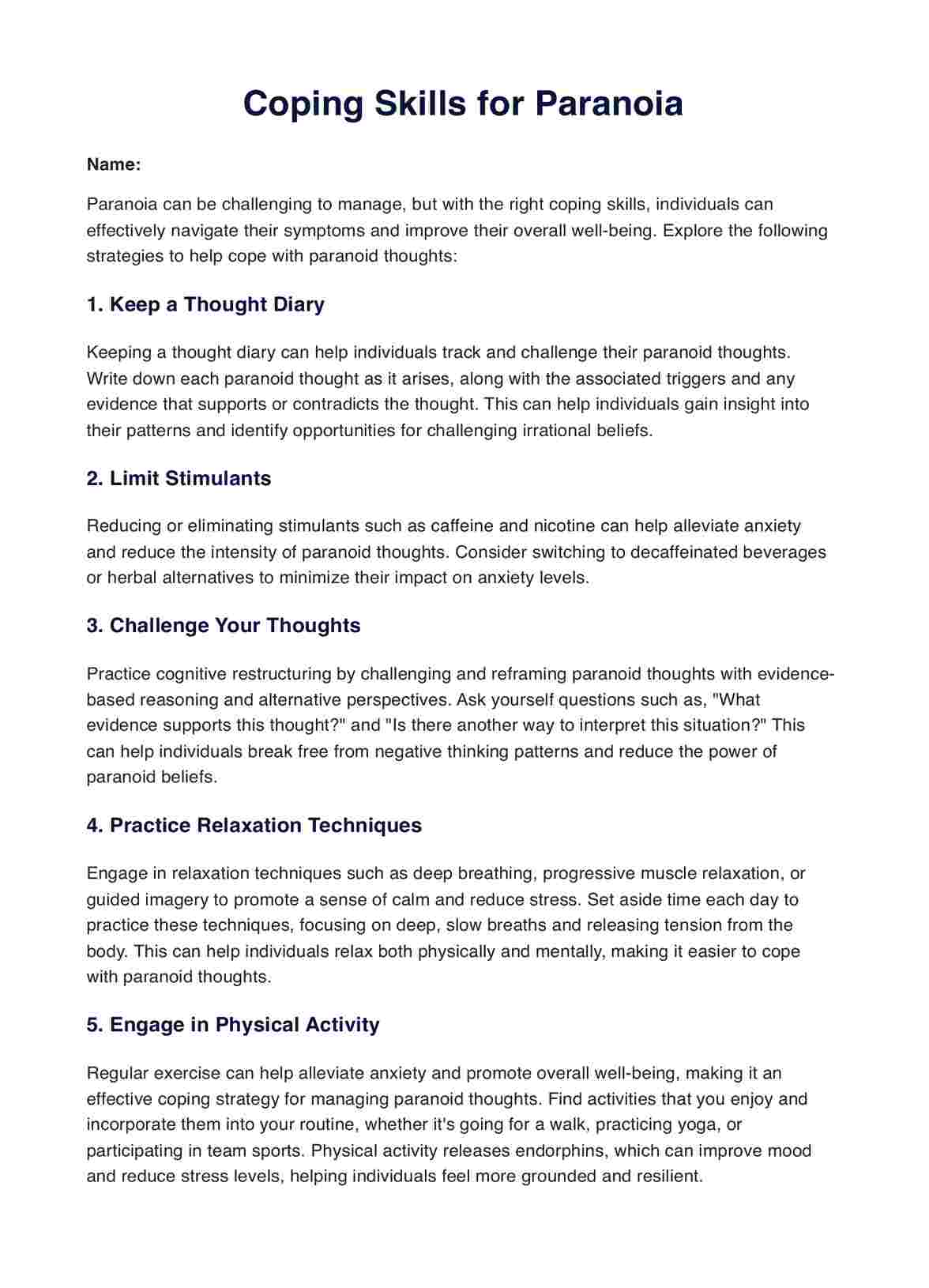
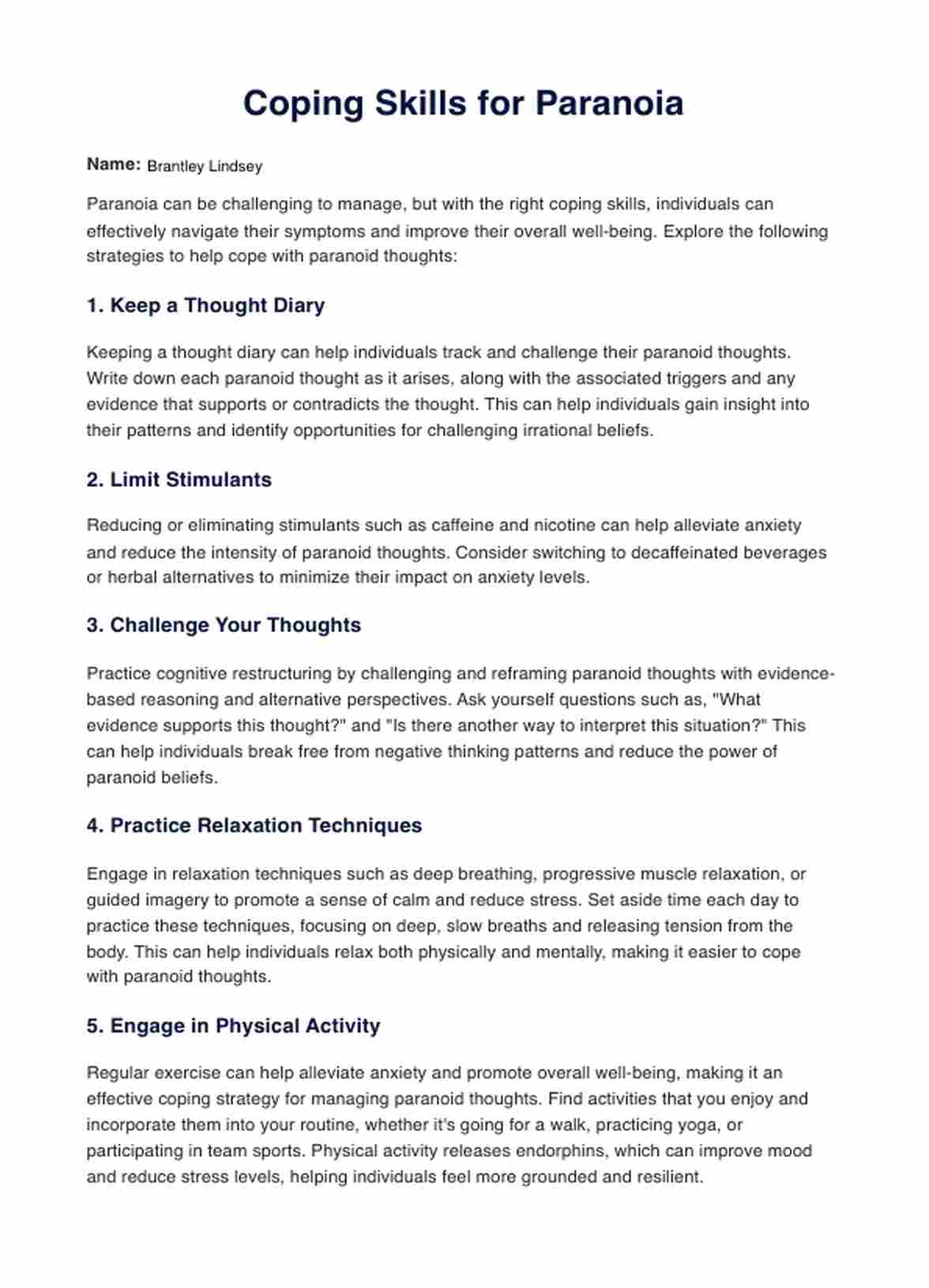

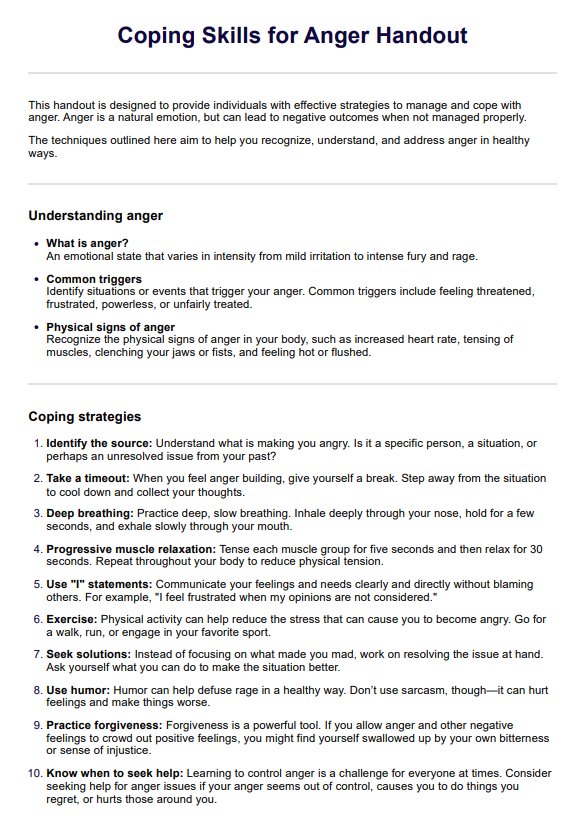
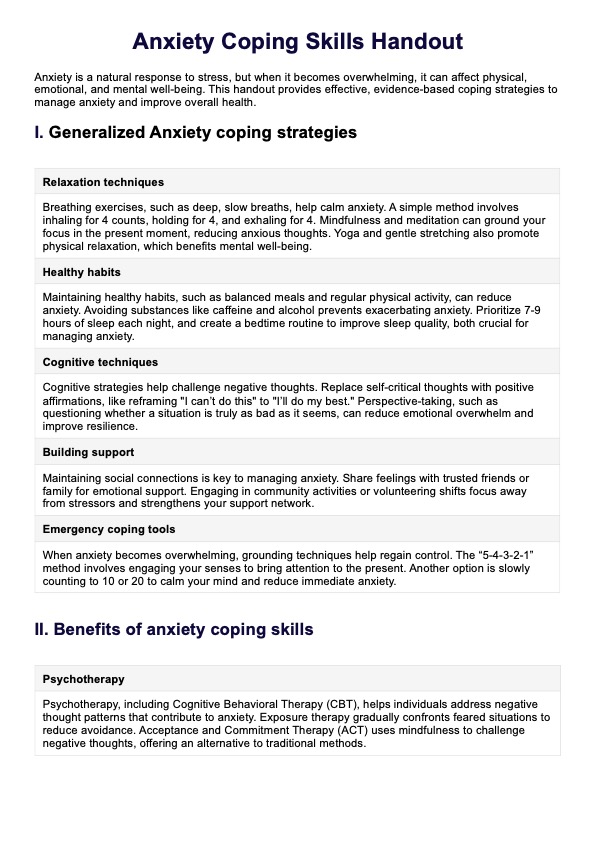
















-template.jpg)



















































































